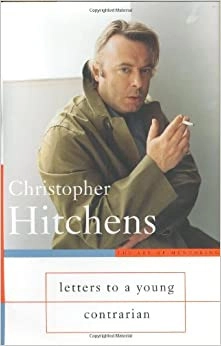Reading Level
What is the reading level of Letters to a Young Contrarian?
Analysing the books in the series, we estimate that the reading level of Letters to a Young Contrarian is 13th and 14th grade.
Expert Readability Tests for
Letters to a Young Contrarian
| Readability Test | Reading Level |
|---|---|
| Flesch Kincaid Scale | Grade 11 |
| SMOG Index | Grade 13 |
| Coleman Liau Index | Grade 10 |
| Dale Chall Readability Score | Grade 8 |
Reading Time
2 hrs 17 mins
How long to read Letters to a Young Contrarian?
The estimated word count of Letters to a Young Contrarian is 34,100 words.
A person reading at the average speed of 250 words/min, will finish the book in 2 hrs 17 mins. At a slower speed of 150 words/min, they will finish it in 3 hrs 48 mins. At a faster speed of 450 words/min, they will finish it in 1 hrs 16 mins.
| Letters to a Young Contrarian - 34,100 words | ||
|---|---|---|
| Reading Speed | Time to Read | |
| Slow | 150 words/min | 3 hrs 48 mins |
| Average | 250 words/min | 2 hrs 17 mins |
| Fast | 450 words/min | 1 hrs 16 mins |
- Authors
-
Christopher Hitchens
More about Letters to a Young Contrarian
34,100 words
Word Count
for Letters to a Young Contrarian
160 pages
Pages
3 hours and 40 minutes
Audiobook length
Description
"Art of Mentoring" seriesIn the book that he was born to write, provocateur and best-selling author Christopher Hitchens inspires future generations of radicals, gadflies, mavericks, rebels, angry young (wo)men, and dissidents. Who better to speak to that person who finds him or herself in a contrarian position than Hitchens, who has made a career of disagreeing in profound and entertaining ways.This book explores the entire range of "contrary positions"-from noble dissident to gratuitous pain in the butt. In an age of overly polite debate bending over backward to reach a happy consensus within an increasingly centrist political dialogue, Hitchens pointedly pitches himself in contrast. He bemoans the loss of the skills of dialectical thinking evident in contemporary society. He understands the importance of disagreement-to personal integrity, to informed discussion, to true progress-heck, to democracy itself. Epigrammatic, spunky, witty, in your face, timeless and timely, this book is everything you would expect from a mentoring contrarian.
